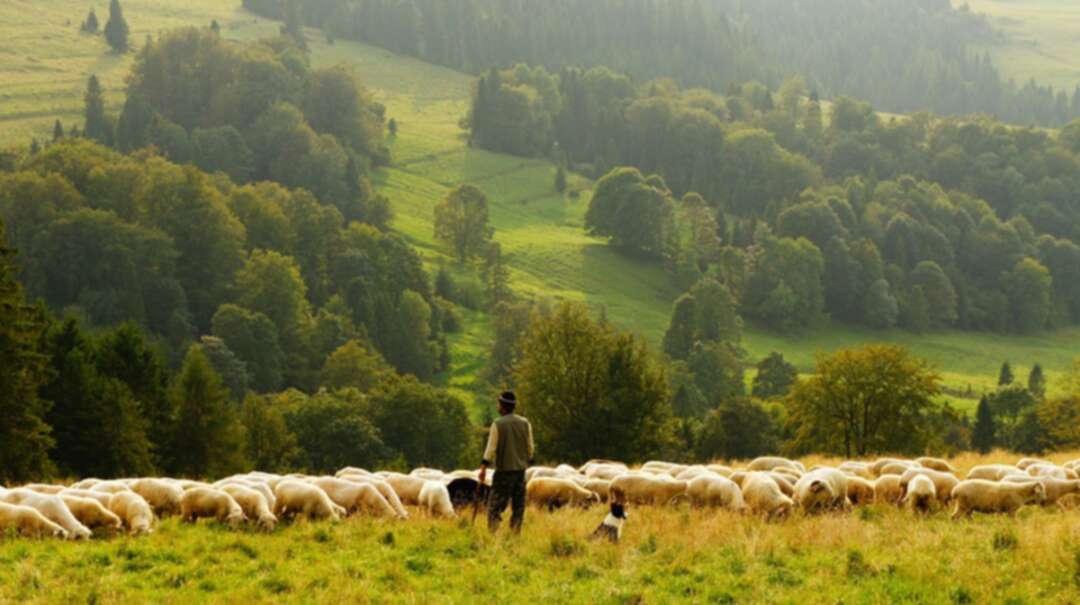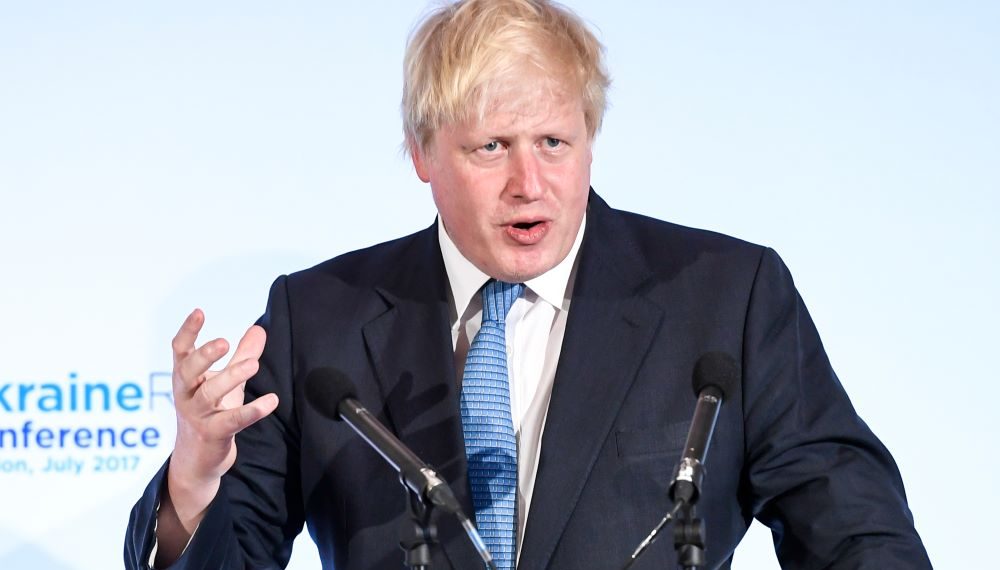-
UK agrees free trade deal with New Zealand

The BBC reported, the UK has agreed a free trade deal with New Zealand which it says will benefit consumers and businesses.
Prime Minister Boris Johnson said the deal will cut costs for exporters and open up New Zealand's job market to UK professionals.
The BBC said, the government hopes it is a step towards joining a trade club with the likes of Canada and Japan.
According to the government's own estimates, the New Zealand deal itself is unlikely to boost UK growth.
Overall, only a tiny proportion of UK trade is done with New Zealand, less than 0.2%.
Labour and the National Farmers Union (NFU) said the deal could hurt UK farmers and lower food standards.

But International Trade Secretary Anne-Marie Trevelyan said it "affords opportunities in both directions for great sharing of produce" and British farmers should not be worried.
Read more: UK watchdog fines Facebook $70 million over deliberately breaking rules
According to the BBC, Mr Johnson and New Zealand's Prime Minister, Jacinda Ardern, agreed the pact in a video call on Wednesday after 16 months of negotiations.
It mentioned that Tariffs will be removed on UK goods including clothing, ships and bulldozers, and on New Zealand goods including wine, honey and kiwi fruits.
The government said, professionals such as lawyers and architects will be able to work in New Zealand more easily.
In a video of the deal being struck, Mr Johnson said: "We've scrummed down, we've packed tight, and together we've got the ball over the line and we have a deal. And I think it's a great deal."
Ms Ardern said: "I loved your use of rugby metaphors, but if we were going to continue that on, then naturally it would conclude with the All Blacks winning.
"And I know that New Zealand feels that way with this free trade agreement, but actually, it's good for both of us, as it happens."
Nothing for farmers
The NFU said the deal, like the one with Australia, could have a "huge downside", especially for UK dairy and meat farmers.
Its president, Minette Batters, said the Australia and New Zealand deals mean "we will be opening our doors to significant extra volumes of imported food - whether or not produced to our own high standards - while securing almost nothing in return for UK farmers".
Read more: Queen Elizabeth cancels Northern Ireland visit due to medical advice
She said: "The fact is that UK farm businesses face significantly higher costs of production than farmers in New Zealand and Australia, and it's worth remembering that margins are already tight here due to ongoing labour shortages and rising costs on farm."
"The government is now asking British farmers to go toe-to-toe with some of the most export-orientated farmers in the world, without the serious, long-term and properly funded investment in UK agriculture that can enable us to do so.
Emily Thornberry, shadow trade secretary, said the government's own figures showed the deal would "cut employment in our farming communities, produce zero additional growth, and generate just £112m in additional exports for UK firms compared to pre-pandemic levels".
She added that the only winners were "the mega-corporations who run New Zealand's meat and dairy farms".
Read more: An evening to remember: Oprah Winfrey to interview Adele in two-hour special
She said: "As our economy recovers from the pandemic, we need trade deals that will boost jobs and growth, open up big new markets for UK exporters, and support our objectives to buy, make and sell more in Britain. This trade deal with New Zealand fails on every count."
The international trade secretary said British farmers should not be concerned about increased lamb imports because the lambing seasons were different in the UK and New Zealand.
Anne-Marie Trevelyan said: "I'm very comfortable it's a complimentary - because of the seasons… consumers will have more choice."
She said trade with New Zealand was currently worth £2.3bn a year but had the potential to increase by up to 30% by 2030.
Source: BBC
You May Also Like
Popular Posts
Caricature
BENEFIT Sponsors Gulf Uni...
- April 17, 2025
BENEFIT, the Kingdom’s innovator and leading company in Fintech and electronic financial transactions service, has announced its sponsorship of the “Innovation and Sustainable Technology Solutions Competition (GU - IST Solutions), hosted by Gulf University at its main campus.
This strategic sponsorship reflects BENEFIT’s active role in advancing technological innovation and fostering sustainable solutions to future challenges. It also seeks to empower Bahraini youth by enhancing their skills, capabilities, and competitiveness in innovation and solution development—contributing meaningfully to the broader goals of sustainable development across all sectors.
As part of BENEFIT’s active involvement in the competition, the company has announced that Hanan Abdulla Hasan, Senior Manager of Public Relations and Communication, will serve on the competition’s supervisory committee. Her upcoming participation reflects BENEFIT’s forward-looking commitment to championing academic and professional excellence.
Commenting on the occasion, Hanan Abdulla Hasan, Senior Manager of Public Relations and Communication at BENEFIT, said, “We are privileged to support this pioneering initiative, which aligns seamlessly with BENEFIT’s enduring commitment to fostering innovation and nurturing the potential of Bahrain’s youth. Our participation is rooted in a deep sense of social responsibility and a firm belief in the pivotal role of innovation in shaping a sustainable future. Through such platforms, we seek to empower the next generation with the knowledge, skills, and foresight required to develop impactful solutions that address future challenges, in line with the United Nations Sustainable Development Goals 2030.”
Dr. Aseel Al Ayash Dean of the College of Engineering in Gulf University commented, “We extend our sincere gratitude to BENEFIT for their generous sponsorship and support of the Innovation and Sustainable Technology Solutions Competition. This contribution plays an instrumental role in helping us achieve the strategic goals of this initiative, namely, cultivating a culture of innovation and sustainability, encouraging efforts that address the imperatives of sustainable development, and enhancing the practical and professional capabilities of our students and participants.”
The event will bring together a diverse spectrum of participants, including secondary school students, university undergraduates, engineers, industry professionals, entrepreneurs, academic researchers, and subject matter experts representing a wide range of disciplines.
The competition seeks to inspire participants to develop and present innovative, sustainable technologies aimed at addressing pressing environmental, social, and economic challenges. It encourages the formulation of business models that integrate advanced technological solutions with core principles of sustainability. Moreover, it serves as a platform for emerging leaders, entrepreneurs, and innovators to contribute to the advancement of the Sustainable Development Goals, promote the ethos of responsible technology, and demonstrate its transformative potential across various sectors.
Attendees will have the opportunity to view a series of project presentations submitted by participants, covering diverse areas such as eco-friendly product design, smart and sustainable innovations, renewable energy technologies, water conservation and management, waste minimisation and recycling, green architectural solutions, and sustainable transportation systems. Outstanding projects will be formally recognised and awarded at the conclusion of the event.
opinion
Report
ads
Newsletter
Subscribe to our mailing list to get the new updates!






















